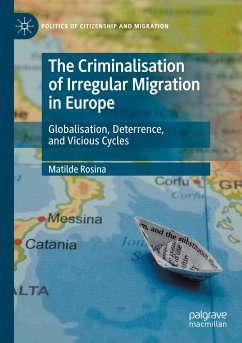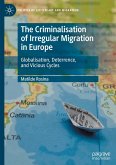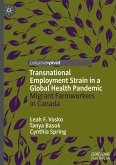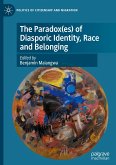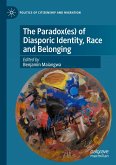This book explores the criminalisation of irregular migration in Europe. In particular, it investigates the meaning, purpose, and consequences of criminalising unauthorised entry and stay. From a theoretical perspective, the book adds to the debate on the persistence of irregular migration, despite governments' attempts at deterring it, by taking an interdisciplinary approach that draws from international political economy and criminology. Using Italy and France as case studies, and relying on previously unreleased data and interviews, it argues that criminalisation has no effect on migratory flows, and that this is due to factors including the latter's structural determinants and the likely creation of substitution effects. Furthermore, criminalisation is found to lead to adverse consequences, including by contributing to vicious cycles of irregularity and insecurity.
"The book will be appealing to diverse audiences in criminology, IPE, international relations and migration studies. It will be equally interesting to policymakers, to whom the author sends a clear message: the only way to reduce irregular migration is to decriminalise it, be honest about Europe's systemic demand for foreign labour and above all create legal pathways for foreign nationals to safely reach Europe for both humanitarian and economic reasons" (Daniela Movileanu, The International Spectator, April 3, 2024)
"This book Rosina uses Italy and France as case studies to investigate the meaning, purpose, practice and consequences of criminalising unauthorised entry and stay. The book provides a compelling case that the criminalisation of irregular migration does not have a sizeable deterrent effect and that in the case of Italy and France the penalties are rarely used. ... The author uses exclusively descriptive statistics to describe trends in the data." (Akira Soto-Nishimura, European Journal of Migration and Law, Vol. 25 (3), August, 2023)
"This book Rosina uses Italy and France as case studies to investigate the meaning, purpose, practice and consequences of criminalising unauthorised entry and stay. The book provides a compelling case that the criminalisation of irregular migration does not have a sizeable deterrent effect and that in the case of Italy and France the penalties are rarely used. ... The author uses exclusively descriptive statistics to describe trends in the data." (Akira Soto-Nishimura, European Journal of Migration and Law, Vol. 25 (3), August, 2023)

